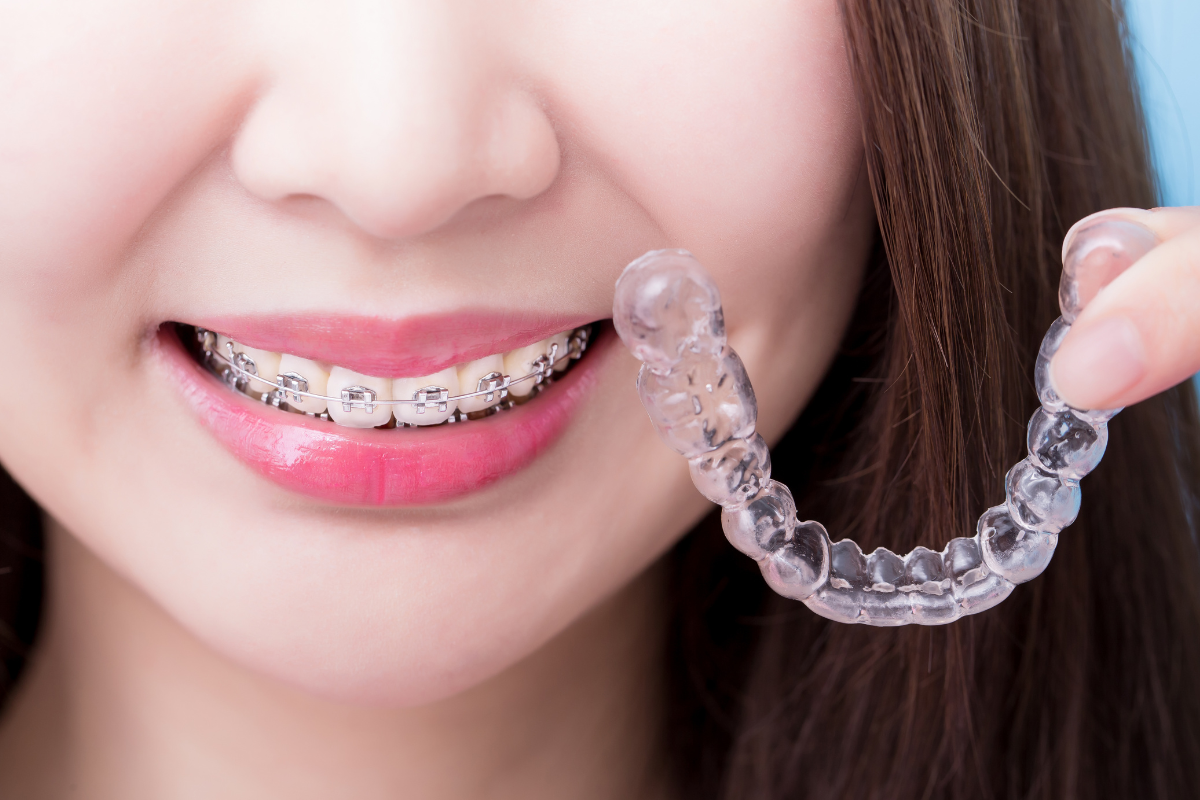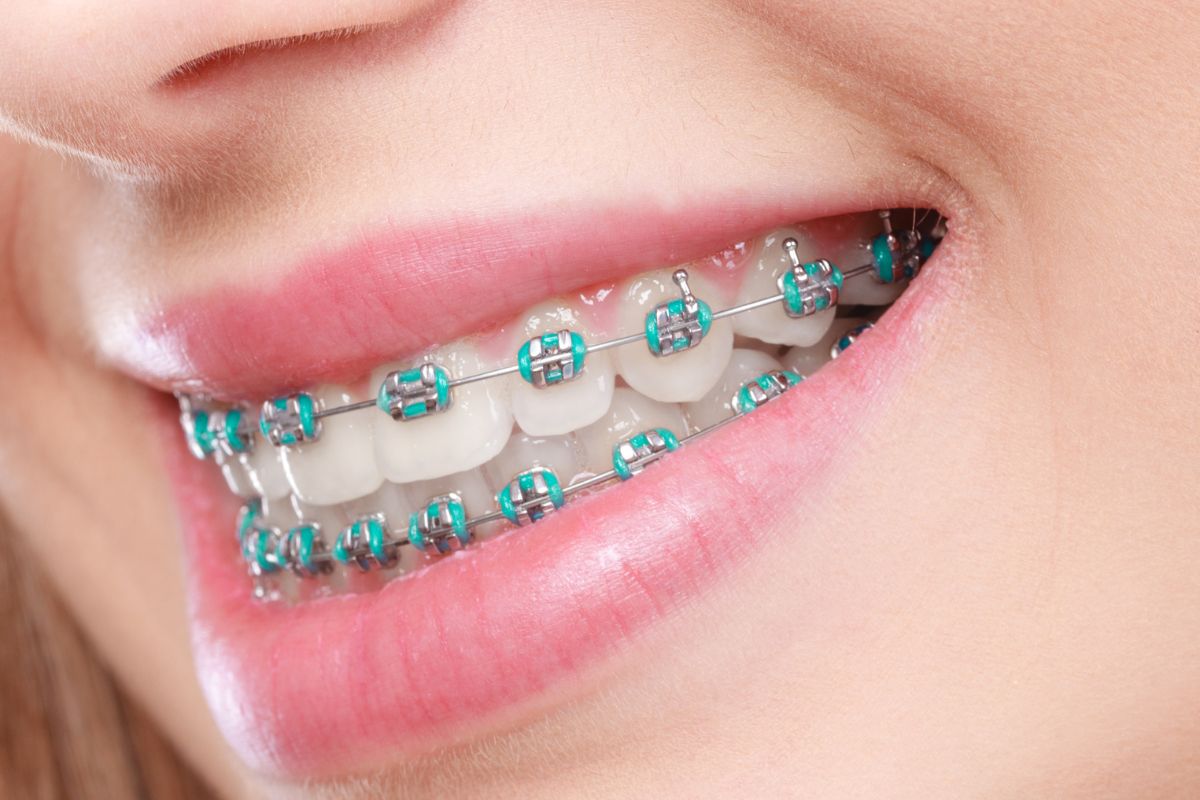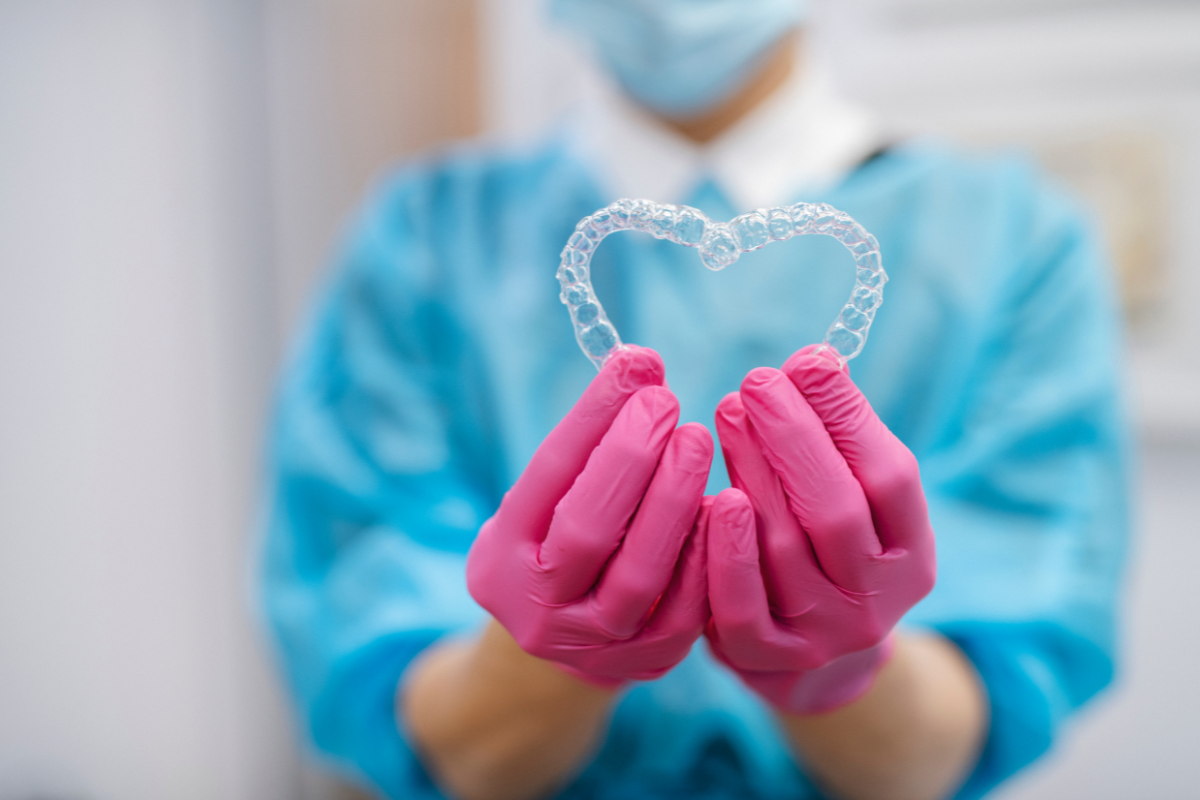Side Effects From Braces Or Invisalign And How To Manage Them
Individuals often seek braces or Invisalign treatment in Miami Lakes to address various dental concerns and achieve a confident smile. Braces and Invisalign offer a comprehensive solution for various dental issues, whether it’s:
- Correcting misaligned teeth
- Fixing bite issues like overbite
- Addressing spacing and crowding problems
Invisalign and braces have the ability to straighten teeth and enhance overall dental aesthetics, which makes them highly sought-after for their long-lasting results. Many understand the importance of a confident smile, and with the guidance of our orthodontists at Specialty Smiles in Miami Lakes, North Miami, and Weston/Davie, they can achieve optimal oral health and a beautiful smile that lasts a lifetime.
While braces and Invisalign offer an excellent opportunity to attain the smile you desire and boost your confidence, it’s important to acknowledge and inform our patients of the possible side effects associated with orthodontic treatment. While typically minimal, the side effects of braces or Invisalign may seem annoying and cause a bit of pain as the structure of the mouth changes, typically likened to growing pains. These side effects are typically temporary and manageable with proper care and guidance from our orthodontists. At Specialty Smiles, we prioritize the comfort and satisfaction of all of our patients. To ensure the best possible experience, we want to offer advice and support to help individuals understand and mitigate the side effects of braces and Invisalign in Miami Lakes. Our orthodontists are always ready to provide guidance and personalized care to ensure that each patient achieves their desired results quickly and with minimal discomfort.
Jump to a Section:
- Differences Between Invisalign and Braces
- Braces: Common Side Effects & How to Mitigate Them
- Invisalign: Common Side Effects & How to Mitigate Them

Differences Between Invisalign & Braces
Braces are orthodontic devices that create constant pressure to gradually shift the position of teeth and improve the appearance of the smile. They consist of brackets that are fixed to each individual tooth, which are then connected by an arch wire. An arch wire is a thin metal wire that applies pressure to the teeth, prompting them to move into alignment over time. Brackets can be silver, white, clear, or tooth-colored depending upon the individual’s preference.
Invisalign, on the other hand, offers a faster alternative for various orthodontic treatments. Invisalign aligners create an equal amount of force on the teeth, rather than targeting individual tooth movement like braces. This all-around force provides quicker alignment adjustments, resulting in a faster treatment process to enhance your smile, as long as the liners are worn correctly and treatment protocol is followed. Most Invisalign treatments typically range from 12 to 18 months for completion, with some milder cases requiring as little as 6 months of treatment.
At Specialty Smiles, our orthodontists will assess your specific needs and determine the optimal treatment length and method, whether it involves braces or Invisalign aligners. Regardless of the chosen treatment, adherence to proper oral hygiene and care practices, including regular brushing and flossing, is essential for successful outcomes. For Invisalign wearers, wearing the aligners for at least 22 hours per day is essential to maximize their effectiveness, and in some cases, wearing bands on braces is a necessity that should not be ignored.

Common Side Effects Of Braces & Tips To Mitigate Them
While braces are highly effective in achieving a healthier and more confident smile, it’s important to note that there are some common side effects associated with them. Although these side effects are typically minimal, they can sometimes cause irritation and mild discomfort. Addressing these effects allows individuals to have a smoother orthodontic experience, learn about ways to mitigate these side effects, and enhance overall comfort during treatment.

Irritation And Mild Bleeding In Gums & Cheeks
Mild irritation and occasional gum or cheek bleeding are common side effects experienced by individuals wearing braces. It takes time for your lips, cheeks, and gums to adjust to the wires and brackets of braces, and during this period, it’s typical to feel some discomfort as your mouth acclimates. One of the most challenging side effects of braces is the constant potential for irritation, with some patients experiencing pinching or poking sensations from wires and brackets. While most patients do not experience significant issues, some may develop sores due to persistent rubbing caused by the wires and brackets that make up braces.
Fortunately, there are solutions we can provide to alleviate this discomfort, such as orthodontic wax. Simply apply the wax to the braces in the affected area to mitigate rubbing and sores. However, if you encounter a sharp wire or develop painful sores due to constant irritation or bleeding, don’t hesitate to reach out to our team at Specialty Smiles. We’re here to assist you in mitigating any discomfort caused by your braces and provide you with a more comfortable orthodontic experience.

Jaw & Tooth Pain
Experiencing jaw and tooth pain is a common side effect of wearing braces, and is a natural part of the orthodontic process, as braces exert pressure on the teeth to shift them into proper alignment. In some cases, orthodontic treatment through braces also involves jaw realignment, which may cause jaw pain, and can sometimes manifest as headaches.
While over-the-counter pain medications like acetaminophen and ibuprofen can help alleviate this discomfort for most individuals, it’s important to be aware of any persistent or worsening pain. If headaches or jaw pains become increasingly severe or more common over time, we recommend consulting with one of our orthodontists at Specialty Smiles. Persistent and worsening jaw or tooth pain after getting braces or having them tightened could indicate underlying issues that require our attention. Our team at Specialty Smiles is here to offer guidance and support to ensure your braces treatment is as successful as possible, while also mitigating pain.

Difficulty Eating
Difficulty chewing and eating can be a common concern, especially after first getting braces or after having your braces tightened. If you experience difficulty chewing while having braces, following a braces-friendly diet is very helpful. These foods can provide relief, and mitigate pain, while also ensuring proper nutrition. To mitigate discomfort, we recommend choosing soft foods like:
- Smoothies
- Soup
- Mashed potatoes
- Other easily chewable options
However, it’s essential to avoid certain foods that may cause discomfort or damage braces, including:
- Hard candies
- Nuts
- Raw or tough vegetables like corn on the cob or carrots
- Popcorn
- Gum
- Caramel or taffy
- Chips
- Fruits that require biting into
While it may be challenging to consume solid foods temporarily after getting braces or having them tightened, this side effect typically resolves quickly and allows individuals to resume their regular eating habits within a short period of time.

Common Side Effects Of Invisalign & How To Treat Them
While Invisalign aligners are well known for their inconspicuous nature and ability to speed up desired results, it’s important to acknowledge that they may come with certain side effects.
Fortunately, we have some tips and tricks to help mitigate the side effects of Invisalign treatment effectively. By following our advice, individuals can reduce any pain or discomfort they experience to help provide a comfortable orthodontic experience. Our goal is to provide our patients with the knowledge and tools they need to overcome any challenges associated with Invisalign treatment and help them ultimately achieve their desired smile.

Cuts On Cheeks Or Gums
Cuts on the tongue or cheeks can be a common side effect of wearing Invisalign aligners, particularly after starting your Invisalign journey. This is typically caused by the tongue and mouth getting used to having the aligners present. Some patients may also accidentally bite their cheeks or tongue as they get used to the aligners in their mouths, while others may experience discomfort due to their teeth gradually shifting into alignment throughout the treatment process.
To mitigate these irritating side effects, patients should allow time to adjust to their new teeth positions and be mindful of their bite. In case of accidental biting, we recommend rinsing the mouth and using an antibacterial mouthwash to prevent infection or mouth sores that cause further irritation. Over-the-counter pain relief such as ibuprofen and acetaminophen can also help counteract any pain caused by shifting teeth or cuts on the tongue or cheeks. If the aligner has any jagged edges that may cause cuts, patients can easily address this issue by having their orthodontist file down the aligner to create a smooth surface, allowing the patient to be more comfortable during treatment.

Dry Mouth Or Bad Breath
Dry mouth and bad breath can be common side effects caused by Invisalign treatment. This occurs because the aligners cover the teeth, hindering the natural flow of saliva. Allowing saliva to naturally flow through the mouth plays a key role in maintaining oral hygiene. Saliva contains enzymes that help flush the mouth, removing bacteria and preventing cavities. When the natural flow of saliva is disrupted by having Invisalign aligners in the mouth, bad breath and dry mouth can occur.
To mitigate these side effects, it’s essential to properly hydrate by drinking sufficient water throughout the day. Maintaining good oral hygiene habits such as regular brushing and flossing can also help keep the mouth clean and minimize bacterial buildup. At Specialty Smiles, we can provide valuable tips and tools to our patients to help them manage these side effects effectively, allowing a comfortable and successful Invisalign journey.

Jaw Pain Or Headaches
Jaw pain or headaches can be common side effects experienced by some individuals using Invisalign for orthodontic reasons. Jaw pain or headaches can be caused by the pressure exerted by the aligners as they work to shift the teeth into their proper alignment. The nerve endings between the teeth, jaw, and face are interconnected, and this pressure can trigger:
- Headaches
- Jaw pain
- Earaches
- Neck pain
Some individuals who use Invisalign aligners may also notice jaw popping, which can occur as the realignment of teeth impacts the positioning of the jaw and bite. While some patients may gradually become accustomed to the gentle pressure of the aligners and experience reduced discomfort over time, others may have more sensitivity. This can be treated by using over the counter pain relief options, and choosing softer foods while the teeth are acclimating to the new aligner. To help mitigate these side effects and ensure a more comfortable Invisalign treatment experience, our team at Specialty Smiles can offer tips to alleviate discomfort and promote smoother orthodontic progress.



